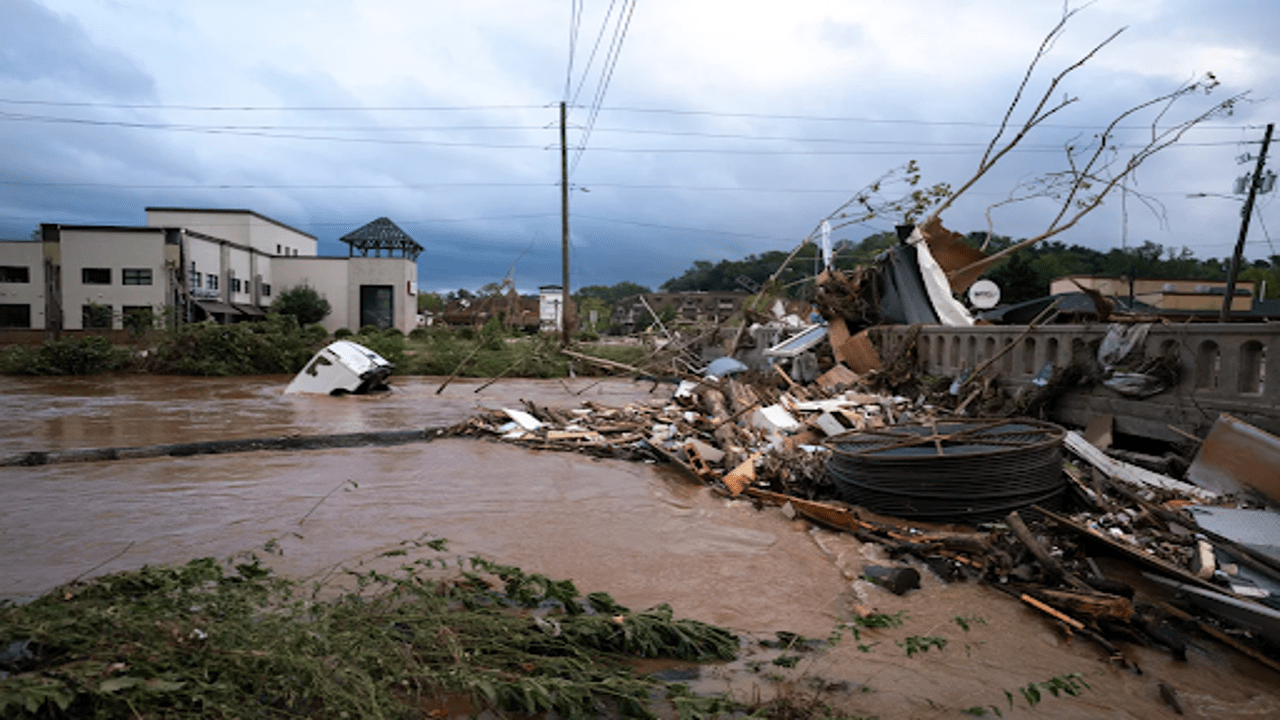
In Asheville, North Carolina, a van is submerged in floodwaters near Biltmore Village following the heavy rains from Hurricane Helene on September 28, 2024. CNN
The Southeast United States is reeling from the aftermath of Hurricane Helene, which struck on Thursday as the strongest hurricane ever recorded in Florida's Big Bend region. The storm has left at least 95 people dead and caused extensive damage across several states, including Florida, North Carolina, South Carolina, Georgia, Virginia, and Tennessee.
In North Carolina, persistent flooding has transformed roads into rivers, leaving many communities without essential services and stretching state resources thin. With at least 36 fatalities reported, the situation remains dire. South Carolina has also been severely affected, with 25 deaths, including two firefighters in Saluda County. Georgia has reported 17 deaths, two of which resulted from a tornado in Alamo, while Florida has seen 11 fatalities, many from drowning in Pinellas County. Virginia and Tennessee have also experienced loss, with two and four deaths reported, respectively.
Amid the chaos, communication outages have led to hundreds of missing persons reports. In Buncombe County, North Carolina, officials have received around 600 reports from concerned family members. Former FEMA administrator Craig Fugate urged people not to despair, reminding them that a lack of communication does not equate to tragedy. As cell service is restored, there is hope for reunification.
The infrastructure damage has been significant, with about 300 roads closed in North Carolina and another 150 in South Carolina. This has hindered the delivery of water and supplies to hard-hit areas, like Weaverville in Buncombe County, which has lost both power and water.
After Hurricane Helene swept through Keaton Beach, Florida, several homes were left in ruins. The NewYork Times
Over 2.1 million people are without power across the affected states. Duke Energy's president in South Carolina stated that restoring power will require extensive repairs to the infrastructure, although efforts are underway to restore electricity by the end of the week.
President Joe Biden has been briefed on recovery efforts and plans to visit impacted areas soon, aiming not to disrupt emergency operations. He has been in contact with governors from the hardest-hit states, including Georgia and North Carolina. Former President Donald Trump expressed his condolences to those affected by the disaster.
The destruction in Georgia has been profound. Governor Brian Kemp described the scene as looking “like a bomb went off,” citing the tragic loss of families, including a mother and her infant twins. In Florida, the situation is similarly grim, with numerous residents displaced and boil water advisories in place.
The federal government has declared public health emergencies in North Carolina, Florida, and Georgia to expedite support for recovery efforts. Health and Human Services Secretary Xavier Becerra stated that the government is deploying medical task forces to assess the impact on hospitals and nursing homes. President Biden has approved federal disaster declarations for several states, facilitating aid to those affected.
The cottages and motel at Faraway Inn were heavily damaged following Hurricane Helene in Florida. AP Photo
As the storm transitioned into a post-tropical cyclone on Friday, rainfall continued in the region, with South Carolina, Florida, and Georgia receiving between 12 to 16 inches of rain. While additional rain is anticipated, officials believe it will not worsen current flooding but may cause runoff due to already saturated soils.
Residents are now faced with the daunting task of recovery. Floodwaters have submerged homes, lifted vehicles, and left businesses in ruin, while thick mud and debris clutter streets. Hundreds remain stranded, waiting for rescue from emergency responders.
As communities come together in the wake of this disaster, the priority remains to ensure safety and restore normalcy in the lives of those affected by Hurricane Helene.















